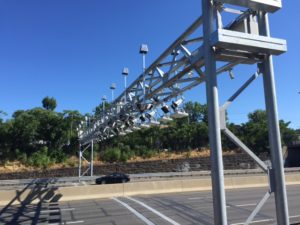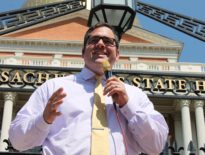House leaders have offered few details about what they plan to include in a transportation revenue package targeted for release this month, but two advocates said Wednesday that toll increases and expansions should be a critical of the strategy.
In a WGBH panel discussion on transportation funding, A Better City CEO Rick Dimino said the state could raise more than half of the $50 billion in new revenue his organization believes is needed for transportation by adding tolls to roads that currently do not have them, increasing the existing tolls and imposing tolls at the state’s borders.
The changes could also help improve equity across the state by ensuring most drivers face similar costs for their commutes, compared to the current system where North Shore and MetroWest motorists bear most of the tolls.
“Roadway pricing is a critical part of our future as well as an important part of how we deal with greenhouse gas emissions and how we deal with congestion,” Dimino said. “We hope that’s a piece of this legislation.”
Fellow panelist Lizzi Weyant, director of government affairs for the Metropolitan Area Planning Council, said greater Boston is an outlier compared to many other similar cities with legacy public transit infrastructure who have already implemented higher tolls or congestion pricing systems, which change rates based on time of day to incentivize off-peak driving.
“MBTA fares have increased astronomically in the same period of time that tolls haven’t increased very much at all,” Weyant said. “MBTA riders have been asked over and over and over again to pay more for a system that hasn’t actually given them much in return, and there’s sort of a fundamental unfairness to that.”
Key House legislators have not ruled any new revenue other than a public transit fare hike off the table for the upcoming debate, and they hinted an increase to the state’s 24-cents-per-gallon gasoline tax is likely to be a piece of the solution.







